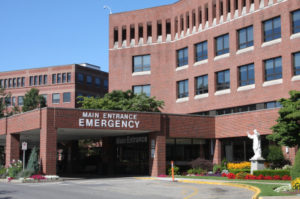PA Health Policy Update for November 22
The following is an update of selected state health policy developments in Pennsylvania November 18 – 22. (Some of the language used below is taken directly from state documents).
Governor Shapiro
Governor Shapiro has signed Executive Order 2024-04 creating the Pennsylvania Permit Fast Track Program to streamline the state’s permitting process for key economic development and critical infrastructure projects. Find additional information in this press release.
General Assembly
The state House of Representatives and Senate have recessed until the call of their respective chair.
Department of Human Services
The Department of Human Services (DHS) has issued a Medical Assistance Bulletin with updates to the Medical Assistance (MA) Program Vaccine Desk Reference. This bulletin applies to all providers enrolled in the MA program that may administer vaccines to MA beneficiaries in the fee-for-service or managed care delivery system.
DHS has updated its calendar of mailing dates for Remittance Advices and corresponding electronic transfers and checks through December. Find the updated calendar here.
Insurance Department
The Pennsylvania Insurance Department (PID) has announced the publication of the first Pennsylvania Affordable Care Act and Qualified Health Plans (QHP) Summary Report. This report examines how PID reviews health insurance products and enforces laws to ensure a fair insurance market and equitable treatment of consumers. Find more information in this press release.
Independent Regulatory Review Commission 
The Independent Regulatory Review Commission (IRRC) has announced it received the following final form regulations, which will be considered at its public meeting on December 5, 2024.
- State Board of Medicine Opioid Treatment Programs: this final-omitted rulemaking amends the Board of Medicine’s regulations to allow the initial physical examination required for prescribing, administering, and dispensing controlled substances to be done via telehealth under certain conditions.
- State Board of Osteopathic Medicine Licensure Requirements: this final rulemaking includes amendments to licensure requirements that are, in part, necessary to reflect the merger of the post-graduate training bodies for osteopathic (DO) and allopathic (MD) medical school graduates into a single accreditation system.
Around the State
- The New York Times has written about President Donald Trump’s plan to nominate Pennsylvania resident Dr. Mehmet Oz to serve as the administrator of the Centers for Medicare and Medicaid Services.
- WKBN 27 has written an article about the Commonwealth’s continued efforts related to the potential sale of Sharon Regional Medical Center, part of Steward Health Care which filed for bankruptcy in May.
- City & State Pennsylvania has published an article about the five bills signed into law by Governor Shapiro this week and his signing of an executive order on permitting.
Stakeholder Events
DHS – Long-Term Services and Supports Subcommittee – December 4
The Long-Term Services and Supports Subcommittee (LTSS) will hold a public meeting on December 4 from 10:00 a.m. to 1:00 p.m. The meeting will be held in person and virtually. Click here for more information.
DHS – Consumer Sub-MAAC – December 4
The Consumer Subcommittee of the Medical Assistance Advisory Committee (MAAC) will hold a public meeting on December 4 at 1:00 p.m. The meeting will be held virtually. Click here for additional information.
DHS – Medical Assistance Advisory Committee – December 5
The Medical Assistance Advisory Committee (MAAC) will hold a public meeting on December 5 at 10:00 a.m. The meeting will be held virtually. Click here for additional information.
 The cut was mandated by the 2010 Affordable Care Act but has never been implemented.
The cut was mandated by the 2010 Affordable Care Act but has never been implemented. The statement, an annual OMB document, organizes the priorities as follows:
The statement, an annual OMB document, organizes the priorities as follows: The Medicaid DSH cut was included in the 2010 health care reform law in anticipation of a great reduction in the number of uninsured people leaving hospitals providing much less uncompensated care and therefore not in need of as much DSH money. The law’s reach has not proven to be as great as anticipated, however, and two developments since the law’s passage have put a damper on the expected rise in the number of insured Americans: a court decision that made it optional for states to expand their Medicaid program and the repeal of the requirement that everyone purchase health insurance.
The Medicaid DSH cut was included in the 2010 health care reform law in anticipation of a great reduction in the number of uninsured people leaving hospitals providing much less uncompensated care and therefore not in need of as much DSH money. The law’s reach has not proven to be as great as anticipated, however, and two developments since the law’s passage have put a damper on the expected rise in the number of insured Americans: a court decision that made it optional for states to expand their Medicaid program and the repeal of the requirement that everyone purchase health insurance. While observers warn that it is difficult to attempt to render a final verdict on the reform law’s insurance expansion and its impact, various studies and observations point to encouraging developments. Among them:
While observers warn that it is difficult to attempt to render a final verdict on the reform law’s insurance expansion and its impact, various studies and observations point to encouraging developments. Among them: In addition, another two million people would be eligible for Medicaid if their states expanded their Medicaid program as authorized by the Affordable Care Act.
In addition, another two million people would be eligible for Medicaid if their states expanded their Medicaid program as authorized by the Affordable Care Act. Or so reports a new study from the National Bureau of Economic Research.
Or so reports a new study from the National Bureau of Economic Research. House Bill 3, with more than 80 sponsors from both parties, would direct the state to establish its own health insurance exchange and establish a Pennsylvania Health Insurance Exchange Fund to pay for it.
House Bill 3, with more than 80 sponsors from both parties, would direct the state to establish its own health insurance exchange and establish a Pennsylvania Health Insurance Exchange Fund to pay for it. According to a new study from the Georgetown University Health Policy Institute’s Center for Children and Families,
According to a new study from the Georgetown University Health Policy Institute’s Center for Children and Families, The report, published on the JAMA Network Open, found that ER visits by uninsured patients fell from 16 percent to eight percent between 2006 and 2016, with most of this decline after 2014, while uninsured discharges fell from six percent to four percent.
The report, published on the JAMA Network Open, found that ER visits by uninsured patients fell from 16 percent to eight percent between 2006 and 2016, with most of this decline after 2014, while uninsured discharges fell from six percent to four percent.